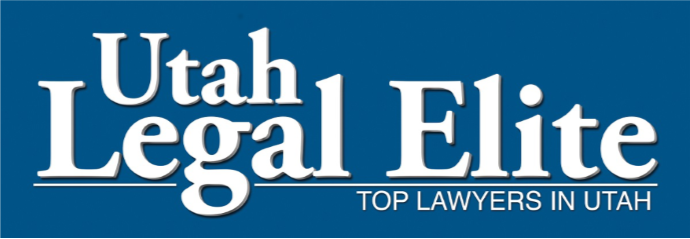Ley de inmigración
LEY DE INMIGRACION
ÁREA DE PRÁCTICA / ABOGADOS DE INMIGRACIÓN DE UTAH
ÁREA DE PRÁCTICA / ABOGADOS DE INMIGRACIÓN DE UTAH
Richards Brandt reconoce el valor que los inmigrantes aportan a las empresas, economías y comunidades estadounidenses. Nuestro bufete ayuda a organizaciones e individuos a navegar las leyes cada vez más complejas de inmigración de nuestra nación y unir a empleadores y empleados, así como a familias.
Con tantas diferentes visas de inmigración y las complejidades adicionales de la ley, estamos aquí para ayudar con este proceso complejo que requiere mucho tiempo. Nuestro experimentado equipo de abogadas de inmigración puede representarlo en todas sus necesidades de inmigración. Juntos podemos trabajar hacia sus metas profesionales y sus compromisos familiares de inmigración.
ABOGADAS DE INMIGRACIÓN PARA FAMILIAS E INDIVIDUOS
Nuestras abogadas de inmigración comprenden las leyes y los cambios constantes en las pólizas establecidas por el gobierno federal de los EE. UU. en procesar sus solicitudes de ciudadanía y naturalización, protección y libertad condicional, ajuste de estatus, admisibilidad, refugiados y asilo, exenciones, viajes y empleo. Nuestra práctica de inmigración está compuesta por abogadas expertas y dedicadas que combinan sus conocimientos de inmigración con años de experiencia en derecho laboral, derecho de familia y defensa criminal.
Nuestro bufete está preparado para ayudar a su familia con cualquier necesidad de inmigración que surja, ya sea un ajuste de estatus, una visa de prometido o una petición de visa basada en la familia.
Existen numerosos formularios y cientos de pautas y excepciones. Para obtener más información sobre cómo procesar su solicitud, llámenos para hablar sobre su situación y determinar los próximos pasos.
Algunas de las cosas con las que ayudamos a familias e individuos:
INMIGRACIÓN BASADA EN EL EMPLEO
Richards Brandt puede ayudar a su empresa a contratar a los mejores trabajadores mientras cumple con las leyes de inmigración.
Los empleados son la inversión más grande que realiza un empleador. Los empleadores confían en su fuerza laboral para el éxito de la empresa. Hay muchas opciones de visas diferentes a considerar. Lo llevamos a usted y a sus empleados a través de este largo proceso paso a paso. Gestionamos los riesgos y eliminamos sorpresas. Ya sea que sus empleados estén aquí en los EE. UU. o en el extranjero, podemos agilizar el proceso manteniéndonos al tanto de todos los variables.
Cada año fiscal (del 1 de octubre al 30 de septiembre), aproximadamente 140,000 visas de inmigrante basadas en el empleo están disponibles para solicitantes calificados bajo las disposiciones de la ley de inmigración de los EE. UU. Nuestros abogados trabajan en todo Estados Unidos con cada una de las tres oficinas de inmigración centralizadas.
Las visas de inmigrantes basadas en empleo se dividen en cinco categorías de preferencia. Cada categoría tiene varias subcategorías, cada una con limitaciones, restricciones y requisitos obligatorios.
Primera preferencia de empleo • Trabajadores prioritarios Segunda preferencia de empleo • Profesionales con títulos avanzados Tercera preferencia de empleo • Trabajadores especializados Cuarta preferencia de empleo • Ciertos inmigrantes especiales Quinta preferencia de empleo • Inversores inmigrantes
• Personas con habilidad extraordinaria
• Profesores e investigadores destacados
• Gerentes o ejecutivos multinacionales
• Personas de capacidad excepcional
• Profesionales
• Trabajadores no calificados (otros trabajadores)
Contáctenos para una evaluación detallada sobre la mejor opción para sus necesidades.
A continuación se muestra una lista de tipos comunes de visas de trabajo de EE. UU. Para ciudadanos extranjeros
Auditoría y cumplimiento de la I-9
Los empleadores deben cumplir con las leyes y regulaciones estatales y federales para contratar y retener empleados talentosos y muy necesarios. Ya sea que esté contratando ciudadanos estadounidenses, extranjeros o residentes permanentes, tenemos una amplia experiencia en ayudar a los clientes con asuntos de cumplimiento y auditoría. Nuestros servicios incluyen la representación de nuestros clientes durante las investigaciones y auditorías gubernamentales. También promovemos y asistimos a nuestros clientes en medidas proactivas como:
• Auditorías I-9 internas y de terceros
• Revisar y corregir errores en los Formularios I-9 existentes
• Políticas de cumplimiento y evaluación de riesgos
• Manuales de cumplimiento y capacitación
Negocios, empleo e inmigración
Los empleadores tienen numerosas leyes comerciales y laborales para navegar y cumplir. En un mundo de conexiones globales cada vez mayores, la necesidad de trabajar con personas y empresas aquí y en el extranjero nunca ha sido mayor. Nuestro grupo de Gobierno Corporativo y Empresarial junto con nuestro grupo de Trabajo y Empleo brindan gestión de riesgos y apoyo legal a los empleadores.
Llámenos directamente para presentaciones de visas de gran volumen o presentaciones múltiples. Puede ser más económico que nos contraten para brindar apoyo legal y minimizar las tarifas de presentación múltiples sobre las tarifas de presentación individuales.
ACTUALIZACIONES RECIENTES DE LA LEY DE INMIGRACIÓN
ABOGADOS DE INMIGRACIÓN EN RICHARDS BRANDT EN SALT LAKE CITY
PREGUNTAS FRECUENTES (FAQS)
PREGUNTAS FRECUENTES SOBRE INMIGRACIÓN / DESTACADAS
P: ¿Por qué debería contratar a una abogada de inmigración?
Answered by:

Christine Seminario
ABOGADA
R: Es una inversión. Si bien hay muchas personas capaces que dedican tiempo a investigar y preparar sus propios formularios, la inmigración es más que simples formularios. Es complejo y cambia constantemente. Incluso los casos “más simples” pueden retrasarse o denegarse innecesariamente por errores simples o porque los solicitantes no son elegibles para ciertos beneficios de inmigración. Cuando paga por nuestros servicios, está pagando por nuestro conocimiento y experiencia en esta área. Esto no significa que siempre podamos lograr el resultado que desea ya que hay muchos factores fuera de nuestro control, pero sí significa que garantizamos la calidad del trabajo que hacemos. Hay mucho en juego: tiempo, dinero y, lo que es más importante, las consecuencias negativas que podrían derivarse de una negación, como para engañarse a sí mismo con una buena representación legal. La gente gasta miles de dólares en cosas que no duran. ¿Por qué no gastar dinero en algo que sí lo hará? Protéjase y proteja su futuro.
P: Si no soy ciudadano de los EE. UU. Y me acusan de un delito, ¿también necesito un abogado de inmigración?
R: Ser acusado y / o condenado por un delito puede acarrear graves consecuencias para los que no son ciudadanos estadounidenses. Dependiendo de su estado en los EE. UU. Y la naturaleza del delito, esto podría afectar su capacidad para permanecer en los EE. UU. O para poder solicitar cualquier tipo de beneficio de inmigración en el futuro. A diferencia del derecho penal, donde tiene el derecho legal a un abogado, no se le otorgan los mismos derechos para asuntos de inmigración, aunque el riesgo de deportación en algunos casos puede ser incluso peor que el encarcelamiento. Debido a esto, su abogado tiene la obligación legal de informarle si su declaración conlleva un riesgo de deportación. Tenga en cuenta que es posible que los abogados de derecho penal no comprendan las leyes de inmigración, por lo que es fundamental consultar con un abogado de inmigración con experiencia que pueda consultar y asesorar sobre el mejor curso de acción en su caso.
P: ¿Cuál es el proceso para traer a mi prometido aquí?
R: Traer a su prometido a los EE. UU. Es un proceso de dos partes, comenzando con el ciudadano estadounidense que presenta un Formulario I-129F ante el USCIS. En esta etapa, debe demostrar que conoció a su prometido en los últimos dos años de haber presentado la petición (existen excepciones) y que ambos son elegibles para contraer matrimonio. Una vez que se aprueba la petición, su caso será procesado por el Centro Nacional de Visas y luego su prometido deberá presentarse para una entrevista en la embajada / consulado de los Estados Unidos en su país. Una vez que se apruebe la visa, su prometido podrá ingresar a los EE. UU., Donde tendrá 90 días desde la entrada para casarse. Después del matrimonio, su prometido es elegible para solicitar la residencia permanente legal (tarjeta verde). Para obtener información más detallada y orientación específica para cada caso, programe una consulta para reunirse con uno de nuestros abogados de inmigración.
P: ¿Qué son los delitos que se pueden deportar?
R: El derecho penal en el contexto de la ley de inmigración es complejo y técnico y requiere un análisis en profundidad del delito involucrado. La gravedad de ciertos delitos también depende de si alguien tiene un estatus legal en los EE. UU. (Ya sea residente permanente legal, visa de estudiante u otro tipo de visa o acción diferida) o si alguien no tiene estatus. Generalmente, los delitos que pueden resultar en deportación incluyen delitos que involucran depravación moral (delitos contra una persona o propiedad que son moralmente reprobables), delitos graves agravados, delitos relacionados con drogas, delitos de violencia y fraude. Es importante observar el estatuto subyacente al delito penal para determinar si el delito se ajusta a la definición federal de delitos deportables. Independientemente de dónde tuvo lugar su delito, nuestros abogados experimentados pueden evaluar las consecuencias migratorias de su condena. Contáctenos hoy para programar una consulta.
P: ¿Cuánto tiempo se tarda en obtener una visa?
R: El tiempo para obtener una visa depende del tipo de visa y del país de origen del solicitante. Las visas generalmente se dividen en dos áreas principales, familiares y comerciales. Las visas familiares se dividen en categorías, que van desde parientes inmediatos (hijos menores de 21 años y cónyuges de ciudadanos estadounidenses) hasta categorías de preferencia que incluyen hijos adultos de ciudadanos estadounidenses, hijos y cónyuges de residentes permanentes legales y hermanos de ciudadanos estadounidenses. Los países con los tiempos de espera más largos son México y Filipinas porque hay la mayor demanda de estos países. Cada mes, el Departamento de Estado actualiza el boletín de visas, que contiene fechas de prioridad (la fecha en que se presentó la Petición I-130) para cada país y categoría de visa. Para comprobar esto, puede ir a: https://travel.state.gov/content/travel/en/legal/visa-law0/visa-bulletin.html. Además de esperar a que se actualice la fecha de prioridad (para pasar a la siguiente etapa), los tiempos de procesamiento también dependen de la embajada o consulado. Hemos representado a clientes de América Latina, Asia, África, Europa y América del Norte, y podemos navegar con éxito la visa por usted.
CASOS DE INMIGRACIÓN CON PROBLEMAS PENALES COMPLICANTES
¿Cuáles son las consecuencias migratorias de las condenas penales? Nuestro Grupo de Práctica de Inmigración tiene décadas de experiencia evaluando el impacto de las acciones y condenas en su estado legal en los EE. UU. Trabajando junto con su abogado de defensa criminal, podemos brindarles a nuestros clientes la representación más completa.
Las leyes de inmigración, las cuales están en cambio constante, dificultan la navegación del sistema de justicia penal y pueden tener consecuencias de inmigración que cambian la vida. Si ha sido arrestado o acusado de un delito y no es ciudadano de los EE. UU., necesita representación de abogados que comprendan tanto las leyes penales como las de inmigración que afectan su caso. Dado que Richards Brandt tiene experiencia en defensa criminal y en leyes de inmigración, podemos brindarle una representación efectiva en cada etapa de su caso para mitigar las consecuencias migratorias de su arresto, cargo o condena.
Barbara Melendez Selected as One of 30 Women to Watch by Utah Business Magazine
June 2018
Barbara Melendez
Richards Brandt Miller and Nelson congratulates Barbara Melendez, Shareholder and Immigration Practice Chair, who has been selected as one of Utah Business 30 Women to Watch. Richards Brandt is honored to be associated with Barbara who is a highly respected and valued member of the firm. Barbara’s dedication, expertise and experience are invaluable assets to the firm and the community. We are proud of her outstanding achievements and contributions to Richards Brandt Miller Nelson and the legal community.
Deferred Action for Childhood Arrivals – Where are we now?
Kendall Moriarty
February 2018
Limbo. On June 15, 2012, President Obama unveiled a program called Deferred Action for Childhood Arrivals (or “DACA”) which would provide employment authorization and protection from deportation for individuals who entered the United States as children and who had never committed a deportable crime. The program began accepting applications on August 15, 2012. Since then, U.S. Citizenship and Immigration Services (or “USCIS,” the branch of the Department of Homeland Security that processes DACA applications and renewals) has accepted over 1.5 million applications requesting relief[1] (at $495[2] a pop, that’s more than $742,500,000 in revenue for the federal government[3]). Of those 1.5 million, more than 1.2 million have been approved.[4]
On September 5, 2017, President Trump issued a new Executive Order effectively beginning a “phasing out” DACA by giving only certain individuals the right to renew within one month’s time. Everyone else could maintain their status until its expiration, but would then lose their protection. However, on January 10, 2018, the District Court for the Northern District of California issued a preliminary injunction pausing President Trump’s order. While this pause does not revive the program entirely, it provides a window of relief for the thousands of individuals who had already been issued DACA and who needed to renew it but missed the deadline or did not qualify based on President Trump’s October 5, 2017 requirement.
In response to the court’s decision, on January 13, 2018, USCIS issued a policy update[5] stating that the agency would again accept DACA renewal applications. This included applications for those who had let their DACA status expire more than a year before President Trump’s September 5, 2017 announcement. However, those who have never been issued DACA cannot newly apply.
Still, the court order allowing eligible individuals to renew their DACA status provides important physical and emotional security for thousands of individuals. Employers who have hired and trained DACA recipients as part of their workforce now also enjoy an added measure of stability.
What does this mean for you?
If you currently have DACA, you may be eligible to renew your work authorization and DACA status. If you have any questions on whether you qualify or how or when you should renew, please call us.
If you are an employer who has hired DACA workers and want to know how these changes affect you and your business, please call us.
If you have never had DACA but want to know if you have other options for seeking and obtaining status in the United States, information is power; please call us.
Author: Kendall J. Moriarty, immigration and general litigation attorney at Richards Brandt Miller Nelson.
[1]https://www.uscis.gov/sites/default/files/USCIS/Resources/Reports%20and%20Studies/Immigration%20Forms%20Data/All%20Form%20Types/DACA/daca_performancedata_fy2016_qtr3.pdf.
[2] https://www.uscis.gov/i-821d.
[3] The Institute on Taxation and Economic Policy found that DACA-eligible individuals and DACA recipients “contribute an estimated $2 billion a year in state and local taxes.” https://itep.org/state-local-tax-contributions-of-young-undocumented-immigrants/.
[4] Id.
[5] https://www.uscis.gov/humanitarian/deferred-action-childhood-arrivals-response-january-2018-preliminary-injunction.
The Future of Optional Practical Training Extensions For Non-U.S. Citizens Who Receive Degrees in the Fields of Science, Technology, Engineering, or Mathematics
Kristina Ruedas
February, 2016
One of the most enduring concerns about the current U.S. immigration law is the difficult and lengthy process qualified non-U.S. citizen workers face in obtaining work visas. In an attempt to provide a bridge between graduation and obtaining a work visa for qualified non-U.S. citizens who graduated from American institutions, the U.S. Department of Homeland Security (“DHS”) established the Optional Practical Training (“OPT”) program to allow foreign nationals who study at United States institutions of higher education on F-1 student visas to work in the United States for up to 12 months during and/or after their education. In 2008, DHS established a new policy allowing students who receive degrees in a science, technology, engineering, or mathematics (“STEM”) field to apply for a 17-month extension of OPT. This allowed non-U.S. citizen STEM workers to continue working in the United States for up to 29 months while waiting for an approved, longer term employment visa.
The OPT program was thrown into question when the Washington Alliance of Technology Workers (“WashTech”), a union representing U.S. citizen technology workers, filed a lawsuit against DHS, claiming that the OPT program circumvented labor rights protected by the H-1B visa program for temporary employment, and that the interim final rule that established the 17-month STEM extension program was procedurally invalid. On August 12, 2015, the U.S. District Court for the District of Columbia ruled that DHS did not follow proper notice-and-comment procedures for the April 2008 rule. Washington Alliance of Technology Workers v. U.S. Department of Homeland Security, Civil Action No. 14-529, 2015 WL 5455331 (D.D.C. August 12, 2015). The court revoked the 17-month STEM extension program as of February 12, 2016, giving DHS time to propose and establish a new rule. A subsequent motion to dismiss filed by the government was granted in part and denied in part, narrowing WashTech’s claims to the 17-month STEM extension program rather than the OPT program as a whole.
On October 19, 2015, DHS published a proposed rule to replace the 17-month STEM extension. The proposed rule also increased the STEM extension from 17 months to 24 months. In other words, if approved, non-U.S. citizen STEM workers could have valid work authorization for a total of 36 months, or three years, after graduation from an American university or college. The proposed rule also contains provisions that would grant relief to workers who “run out” of OPT while an employment visa application is pending decision. Pursuant to the Administrative Procedure Act, DHS took public comment on the proposed rule until November 18, 2015. DHS is now working to turn the proposed rule into a final rule as soon as possible in an attempt to avoid any problematic gaps in work authorization.
The results of this litigation and rulemaking process has high stakes for thousands of non-U.S. citizen students, graduates, and their employers who rely on this work authorization. Should the current 17-month extension lapse on February 12 with no new final rule in place, STEM extension workers would need to immediately cease employment. If you are a non-U.S. citizen student or recent graduate, or are an employer utilizing temporary employment visas, please contact our office for advice on how to plan for potential changes in the Optional Practical Training.
The contents of this piece are not legal advice, and this piece does not create an attorney-client relationship. Kristina Ruedas is a Utah Immigration Attorney with RBMN, and can be contacted at (801) 531-2000 or kristina-rudeas@rbmn.com.
Abogado de Inmigración
ABOGADO DE INMIGRACIÓN
PRACTICE AREA / ABOGADO DE INMIGRACIÓN
La oficina de los abogados Richards Brandt reconoce el valor que los inmigrantes traen a los negocios, economía y comunidades de los Estados Unidos. Nuestro bufete de abogados ayuda a sus clientes a navegar las leyes complejas de inmigración de nuestro país.
OFRECEMOS SERVICIOS LEGALES PARA NECESIDADES BASADAS EN EL EMPLEO Y LA FAMILIA.
Tenemos abogados quienes son muy dedicados y determinados, y quienes combinan conocimiento de las leyes de inmigración con años de experiencia en leyes de empleo, familia, y defensa criminal.
AYUDA PARA FAMILIAS PARA PERMANECER JUNTOS
Nuestro bufete de abogados está listo a ayudarle a su familia con cualquier pregunta relacionada a la inmigración que tenga. Podemos ayudarle con una variedad de casos, como cambiar un estado migratorio o pedir una visa para un miembro de su familia. También tenemos experiencia en dar ayuda a los inmigrantes jóvenes a llenar los documentos necesarios para el programa “Acción Deferida para Llegadas Infancias,” que permite a ciertos inmigrantes jóvenes obtener un permiso para trabajar legalmente en los Estados Unidos. También, estamos listos para representarle en un proceso de repatriación o deportación.
COMBINACIÓN DE CONOCIMIENTO DE LA LEY DE INMIGRACIÓN Y LAS LEYES DE DEFENSA CRIMINAL
Porque las leyes criminales y de inmigración están en cambio, los arrestos y convicciones pueden tener consecuencias migratorias muy graves. Si Ud. recibió un boleto o una multa, o fue arrestado o le encontraron culpable de una ofensa criminal, y si Ud. no es ciudadano de los Estados Unidos, Ud. necesita representación de abogados quienes entienden las consecuencias criminales y migratorias de cada aspecto de su caso. Los abogados de Richards Brandt pueden dar representación efectiva en cada etapa de su caso para reducir las consecuencias migratorias de su arresto, cargo o convicción.
TRABAJAMOS CON EMPRESAS PARA CUMPLIR CON LOS REQUISITOS DE LAS LEYES Y REGULACIONES DE INMIGRACIÓN
Cualquier empresa necesitan cumplir con las leyes y regulaciones federales y estatales para contratar y emplear buenos trabajadores. Las empresas podrían ser responsables con multas grandes si no cumplen con estas leyes. Nuestro bufete de abogados puede ayudar a empresas grandes y pequeñas a cumplir con estas leyes. Por favor, póngase en contacto con nuestro bufete si su empresa quiere desarrollar un plan de cumplimiento o necesita ayuda para obtener visas para sus empleados, o necesita representación en un caso con el gobierno federal o estatal.
Póngase en Contacto con Nuestro Bufete de Abogados para Hacer una Consulta
Comuniquese con nuestra oficina para una consulta con un abogado de inmigración.
RECENT ABOGADO DE INMIGRACIÓN UPDATES
ABOGADO DE INMIGRACIÓN
FREQUENTLY ASKED QUESTIONS (FAQS)
BUSINESS TRANSACTIONS & CORPORATE GOVERNANCE / FEATURED FAQS
Q: Is an LLC or Corporation right for my business?
Answered by:
A: To decide which entity is right for you, we look at: liability, taxation, and maintenance. Both corporations and LLC’s have limited personal liability—this means that owners are usually not responsible for business debts. However, corporations and LLC’s are taxed very differently—corporations are classified as a separate taxable entity, whereas LLC’s are typically taxed as a pass-through entity (unless you choose otherwise). And corporations and LLC’s have different levels of maintenance—LLC’s have fewer reporting requirements and can operate solely with members acting as the managers. Conversely, corporations are required to hold certain annual meetings, keep certain records, and appoint boards and officers to manage the company for the stockholders. Every situation is unique so we recommend that you consult with an attorney in making your decision. Contact our firm, Richards Brandt, if we can help you decide which entity is right for you.
Q: Is an LLC or Corporation right for my business?
Answered by:
A: To decide which entity is right for you, we look at: liability, taxation, and maintenance. Both corporations and LLC’s have limited personal liability—this means that owners are usually not responsible for business debts. However, corporations and LLC’s are taxed very differently—corporations are classified as a separate taxable entity, whereas LLC’s are typically taxed as a pass-through entity (unless you choose otherwise). And corporations and LLC’s have different levels of maintenance—LLC’s have fewer reporting requirements and can operate solely with members acting as the managers. Conversely, corporations are required to hold certain annual meetings, keep certain records, and appoint boards and officers to manage the company for the stockholders. Every situation is unique so we recommend that you consult with an attorney in making your decision. Contact our firm, Richards Brandt, if we can help you decide which entity is right for you.
Q: Is an LLC or Corporation right for my business?
Answered by:
A: To decide which entity is right for you, we look at: liability, taxation, and maintenance. Both corporations and LLC’s have limited personal liability—this means that owners are usually not responsible for business debts. However, corporations and LLC’s are taxed very differently—corporations are classified as a separate taxable entity, whereas LLC’s are typically taxed as a pass-through entity (unless you choose otherwise). And corporations and LLC’s have different levels of maintenance—LLC’s have fewer reporting requirements and can operate solely with members acting as the managers. Conversely, corporations are required to hold certain annual meetings, keep certain records, and appoint boards and officers to manage the company for the stockholders. Every situation is unique so we recommend that you consult with an attorney in making your decision. Contact our firm, Richards Brandt, if we can help you decide which entity is right for you.
BUSINESS TRANSACTIONS & CORPORATE GOVERNANCE – CASE STUDIES
Utah Manufacturing Company Needed Employment Contracts For Key Staffers
Utah Construction Company Needed Planning For Business Growth & Protection
Utah Family Enterprise Needed Guidance and Representation to Sell Business
REVIEWS
2014 Executive Orders on Immigration Video Presentation
President Obama decided to pursue Immigration Reform through Executive Orders. May hear something after November 5, 2014.
- Work Permits for Parents of DACA
- Work Permits for Agriculture
- Increase Employment Related Visas
- Extension for Foreign Nationals who Graduate from U.S.
- Residency for Spouses of U.S. Citizens who Entered Illegally
Form I-9 Compliance Video Presentation
September 23, 2014
Complying with the rules and regulations under the Form I-9 enforced by USCIS.
In September 2012, 520 criminal work place enforcements and arrests took place. In September 2013, more fines were issued, in one case the government issued a $34m to settle systematic visa fraud and abuse. ICE is enforcing felony criminal charges. The Grand America was fined $2m for immigration violations.
Fines and penalties are expected to increase along with re-audits by ICE.
Correct your measures
Audit your forms
Train your employees
Execute I-9 compliance plan
The «Gang of 8» Senators Release the Border Security, Economic Opportunity and Immigration Modernization Act of 2013

April 2013
After months of debate, negotiations and speculation, the «Gang of 8,» made up of eight Republican and Democratic senators charged with the task of composing an immigration reform bill, has released its much-anticipated proposal. On Wednesday, April 17, the 844-page bill (titled the «Border Security, Economic Opportunity and Immigration Modernization Act of 2013«) was filed in the Senate. The bill represents some significant compromises between the two major parties and reflects the changed political landscape surrounding immigration reform in the wake of last November’s election.
Here is a brief overview of some of the key provisions of the bill:
Border Security
The Department of Homeland Security must create, fund and implement a border security and fence plan. Within 10 years of the bill’s enactment, all employers in the United States must be using E-Verify. A visa exist system must be implemented at all international airports and seaports.
Jobs
The bill seeks to protect American workers from losing much-needed jobs to immigrants. The bill would not allow any work visas to be issued if the unemployment rate in a certain area is above 8.5 percent. Foreign students will get a «green card stapled to their diplomas.» The number of available H1-B visas will be nearly doubled. However, certain categories of family visas such as siblings and adult, married children of citizens will be eliminated.
The Guest Worker Program will be «modernized.» A new agricultural guest worker visa program will be established, which will allow some current undocumented agricultural workers to obtain legal status through an Agricultural Card Program.
Pathway to Citizenship
The bill proposes a long and arduous «pathway to citizenship» for the estimated 11 million people living in the United States illegally. No undocumented immigrant is eligible to apply for this temporary status until the border security measures are in place. Once the first security triggers are achieved, undocumented immigrants will be able to come forward, pass background checks, be fingerprinted, pay $2,000 in fines, pay taxes, prove gainful employment, and prove they have been in the U.S. since 2011, among other criteria. Those who have a serious criminal history or do not meet the above criteria will be deported.
Undocumented immigrants will not be eligible for federal benefits during this time, including benefits under «Obamacare.» Undocumented immigrants will have to prove they can support themselves and are not dependent on the government by verifying that they earn at least 25 percent above the poverty level and are gainfully employed.
Certain immigrants who were deported will be allowed to return to the United States if their spouse and children are still living in the United States.
The Dream Act
The bill contains a version of the Dream Act, which would allow young undocumented people whose parents brought them to the U.S. illegally or overstayed visas to be eligible for permanent residence in five years and citizenship immediately thereafter if they meet certain criteria.
The bill still has a long road ahead of it, and both conservatives and immigration reform proponents have already begun attacking the bill. However, many would agree that this is the closest the country has come in years to meaningful immigration reform. Let the debates begin!
Contact Barbara Melendez or Kristina Ruedas for more information.
Compliance with Immigration Law and the Value of an Independent Form I-9 Audit
February 2013
Over the last year, the national news has been populated with headlines addressing the fierce debate over immigration reform. Many may not realize that even before the 2012 presidential election, federal law enforcement agencies had begun paying increased attention to businesses’ compliance with immigration laws and regulations. In 2011 alone there were approximately 2,500 immigration-related audits of employee records, resulting in well over $6 million in administrative fines, and the number of audits performed each year is steadily increasing. The main targets for compliance auditing are the proper completion and storage of Form I-9s for every employee and the proper use of E-Verify to check employees’ immigration status. This article will discuss how the potential fines and disruption of company operations resulting from an audit can be greatly mitigated by conducting an independent I-9 audit before you are audited by the government.
The nation’s immigration laws and regulations apply to every U.S. employer, regardless of whether the employer employs immigrants or not, and the fines and penalties for violation of these laws will be assessed regardless of whether an employer employs immigrants. Every U.S. employer is prohibited from knowingly hiring an immigrant who is unauthorized to work or continuing to employ an immigrant once the employer discovers the immigrant is not authorized or is no longer authorized to work. The government only needs to establish the «knowing» element by a preponderance of the evidence, the easiest legal standard to meet, and knowledge will be inferred by notice of certain facts. An employer’s violation of immigration laws and regulations triggers substantial fines and penalties: between $375 and $3,200 for every incident of «knowingly» employing an immigrant not authorized to work (the fine increases for repeat offenders), between $110 and $1,100 for every failure to properly retain and present a Form I-9 for audit, debarment from federal contracts, and in some cases, criminal charges.
The Immigration and Customs Enforcement Agency («ICE») begins an I-9 audit of a company by presenting a «Notice of Intent» to inspect the company documents, which gives the employer 72 hours to gather the necessary documents and prepare for the audit. When ICE returns to the company after 72 hours, its officers demand production of Form I-9s for all current and terminated employees, a list of all current and terminated employees with hire and termination dates, copies of all quarterly wage and hour reports and/or payroll information for all current and terminated employees for the period of inspection, quarterly tax information, business information (valid licenses, etc.), proof of enrollment in E-Verify, and any communications with the Social Security Administration regarding mismatched identification numbers. Any delay in production of the above documents beyond the 72-hour period constitutes a violation of the retention requirements for Form I-9s.
ICE pursues companies regardless of size, industry, or geographic location. Oftentimes, these audits are triggered by a former or disgruntled employee who alerts ICE to possible infractions of the law. The availability of U visas, which grant legal status to immigrants who aid law enforcement and report crimes, also creates an incentive for some former employees to report possible violations of immigration law and regulation. Audits are taxing and expensive for a company that is not prepared to handle the audit expeditiously.
Because of the costs associated with government audits, measured in both potential fines and disruption of company operations, an independent audit conducted in preparation of a potential government audit has significant benefits. The purpose of an independent I-9 audit is to discover any evidence that could be used to fine the employer for «knowingly» hiring or continuing to employ an immigrant unauthorized to work; to recommend how to mitigate potential violations and keep current on best compliance practices; to check the efficiency of an employer’s re-verification system for I-9s; and to determine whether there is substantial evidence of an employer’s good faith efforts to comply with the verification system. An independent audit not only provides peace of mind for an employer, but also acts as a significant mitigating factor should a government audit reveal a mistake or inconsistency in documentation.
Please contact us for an internal review of your company’s immigration compliance or to address any other immigration or employment concerns.
Immigration Issues and Personal Injury Defense

Tanya N. Lewis Peters
February 2013
Regardless of the political issues currently swirling around immigration reform, it is important to have a grasp of basic immigration law principles when defending personal injury cases.
A few recent cases are illustrative of the effects that an undocumented worker’s status can have on claims of personal injury, plaintiff employment, or similar claims.
Hoffman v. NLRB, 122 S.Ct. 1275 (2002). In this case, the employer petitioned for review of, and the National Labor Relations Board (NLRB) cross-applied for enforcement of, an NLRB order awarding an undocumented worker backpay from date of his illegal termination until the employer discovered he was unauthorized to work. A panel of the Court of Appeals for the District of Columbia Circuit ordered enforcement. Following grant of a petition for rehearing en banc, the Court of Appeals again granted enforcement. On appeal, the U.S. Supreme Court, Chief Justice Rehnquist, held that federal immigration policy foreclosed the NLRB from awarding backpay to an undocumented worker who had never been legally authorized to work in the United States.
Madeira v. Affordable Housing Foundation, 315 F.Supp.2d 504 (S.D. New York 2004). Here, an injured undocumented worker’s status did not prevent him from recovering compensatory damages for defendants’ violation of New York’s Scaffold Law. His undocumented immigrant status was relevant to determining whether lost wages were appropriate and how much should be awarded.
Silva v. Wilcox, 223 P.3d 127 (Colo. Ct. App. 2009). Here, to the extent that a defendant is able to establish that a plaintiff immigrant is not authorized to be in the United States and has secured employment by violating the law or is in violation of the law in some other particular manner related to such employment, so that the plaintiff is unlikely to remain in this country throughout the period of claimed lost future income, the jury should be provided that information in determining whether to award damages for lost future wages.
During discovery, an attorney may wish to direct written discovery to the plaintiff that asks about citizenship and immigration status. During the deposition of a plaintiff believed to be an undocumented immigrant, potential questions to ask include: Are you a U.S. Citizen? Where were you born? What is your immigration status? Are you legally authorized to work in the U.S.? If so, how is that documented? Have you ever applied for Medicare or Medicaid? (Don’t assume they haven’t – a Medicare audit last year revealed that people living in the U.S. illegally had collected over $120 million in Medicare benefits as of 2012. This could trigger Medicare Secondary Payer Act issues in the future.)
You can also take the deposition of the employer. Always do this as a 30(b)(6), and always serve the notice as a Notice of Deposition Duces Tecum. You can also subpoena the documents beforehand using Rule 45. Ask them to provide a complete employee file, including hire documents. Define “hire documents” as the employment application, I-9 form, and any copies of documents inspected in conjunction with the I-9 form. (This is, of course, in addition to any wage loss documents you want to obtain, such as W2s, W4s, payroll information, etc.)
Using best practices in the handling and workup of these cases can minimize carrier/defendant exposure by putting you in the best position for pretrial motions, including motions in limine.
Of course, this raises the issue of what to do when defending a case and your client (defendant) is undocumented. For example, this problem arises when a driver hired by an employer turns out to be working illegally, and then causes an automobile accident while in the course and scope of his/her employment. First, try to exclude the defendant’s immigration status under Rule 401. Second, TXI Transportation v. Hughes, 306 S.W.3d 230 (Texas 2010) is extremely helpful. It held that neither the illegal immigrant status of a gravel truck driver, nor his use of a fake Social Security number to obtain his commercial driver’s license, was relevant to a negligent entrustment or hiring claim against the employer. It also held that the illegal immigrant’s status was inadmissible to impeach the driver’s testimony, and that erroneous admission of evidence relating to the driver’s immigration status was not harmless.














Barbara Melendez Selected as One of 30 Women to Watch by Utah Business Magazine
Deferred Action for Childhood Arrivals – Where are we now?
The Future of Optional Practical Training Extensions For Non-U.S. Citizens Who Receive Degrees in the Fields of Science, Technology, Engineering, or Mathematics